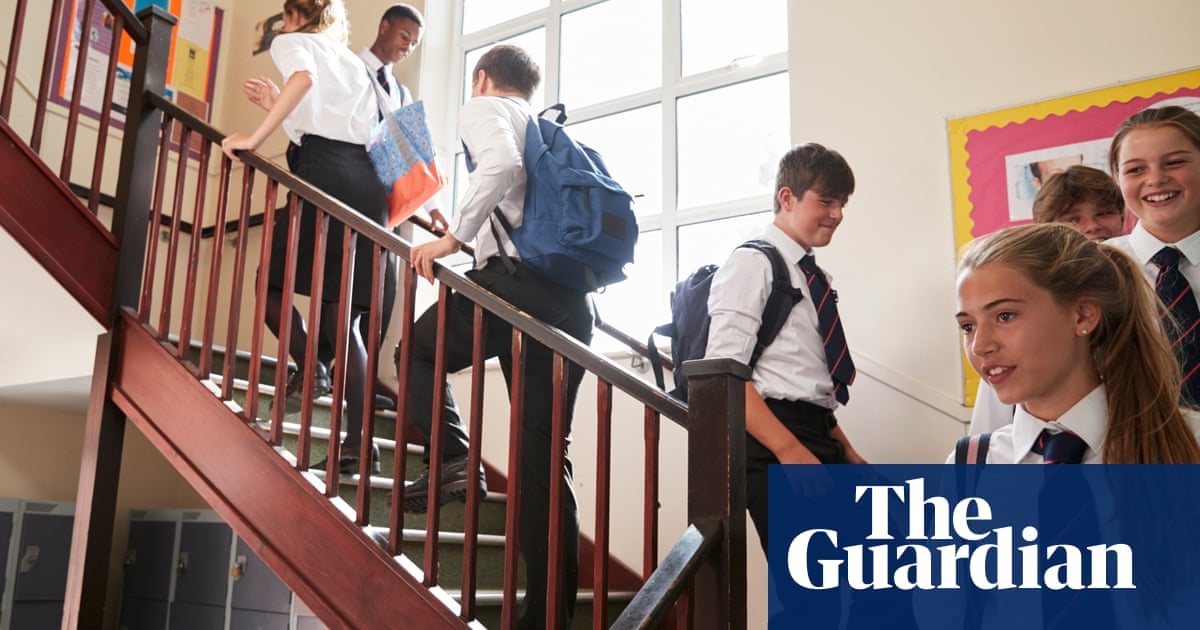School leaders have said they lack the resources to manage a rising tide of challenging behaviour since the Covid pandemic, after figures revealed a significant rise in the number of pupils being suspended and expelled in England.
The figures from the Department for Education (DfE) showed more pupils were being suspended repeatedly, and for longer periods, than before the pandemic struck in 2020 and schools were closed for most children over extended periods.
The number of suspensions issued by schools has nearly doubled, with 346,000 in the autumn term of 2023, compared with 174,000 before the pandemic in autumn 2019.
Over the same period the number of children permanently excluded from school rose by nearly a third, from 3,167 in 2019 to 4,168 in autumn last year.
The figures support reports from teachers that behaviour among older children has continued to deteriorate since the pandemic, with the suspension rate in secondary schools jumping by a third between 2022 and 2023.
At the same time schools are struggling to deal with sustained increases in pupils persistently absent, while the numbers of children on free school meals, or with mental health difficulties or other special needs, are also at record levels.
Pepe Di’Iasio, the general secretary of the Association of School and College Leaders, said the school system was “teetering on the brink of collapse” because of funding and support shortages, and urged the government to address the problems.
Di’Iasio said: “There is clearly a very serious problem facing schools with rising incidents of challenging behaviour … This has become a great deal worse since the pandemic where many children experienced disruption to their education and isolation that are continuing to have a lasting impact.
“In many cases, schools simply do not have the resources to provide the level of specialist support required to prevent behavioural issues from escalating and so we see this ending up with suspensions and permanent exclusions being used as a last resort.”
He added: “Funding pressures have meant that many schools have had to cut back on pastoral support, and there are serious shortages in teachers and specialist support staff such as educational psychologists.
“There are also long waiting times to assess and identify the support required for children with the most complex special educational needs. The whole system is teetering on the brink of collapse and the government must show urgency in addressing these problems.”
Stephen Morgan, the education minister, said the previous Conservative government had allowed suspensions and exclusions to “spiral out of control shamefully,” harming the life chances of children.
“We have reached crisis point but this government is determined to turn the tide on poor behaviour, break down barriers to opportunity and ensure every child can achieve and thrive,” Morgan said.
“We’ve already announced a significant £1bn investment in [special education], committed to providing access to specialist mental health professionals in every school, and our new regional improvement teams will work with schools to spread the highest standards of behaviour across our classrooms.
after newsletter promotion
“But we know there is more to do, and are looking closely at how we can go further to support teachers and drive up standards for all our children.”
The exclusion rate for pupils eligible for free school meals was six times higher than those not eligible, while the peak age group for exclusions was in year 9 – the cohort whose transition between primary and secondary school was interrupted by the pandemic.
Headteachers and school leaders are adamant that exclusions are only used as a last resort, while suspensions are necessary to protect the learning environment for other children. Schools cited “persistent disruptive behaviour” as a factor in half of all exclusions and a third of exclusions, while verbal abuse and threatening behaviour towards an adult was the next most common at 16%, followed by physical assaults on other pupils at 13%.
The number of individual pupils suspended increased by 28% to 171,000. While nearly half were suspended for only one day or less, 12,600 were suspended for more than two weeks in the course of a single term – an increase of 37% in the space of one year.
If the high levels of exclusions and suspensions continue into spring and summer 2024, it will surpass 2022-23 – when 787,000 suspensions were issued – as the worst school year since current records began in 2006.
The Department for Education has been approached for comment.
